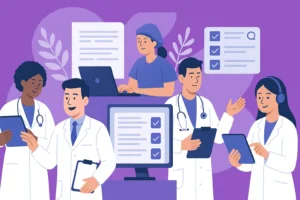The eLearning Lessons We Can Take into Post-Pandemic Life
In March, most school districts were sent scrambling when the start coronavirus pandemic made it clear it was not wise to conduct school on campus – at least not in the traditional way.
Some students are back in the physical building, while others are learning entirely remotely. But, with nine months of time to develop strategies and best practices, not only are districts now starting to get a clearer picture of how to best educate students, but teachers are, as well.
Randy Rodgers, Judson ISD’s Director of Instructional Technology, said one teacher he works with struggled to get the hang of the learning management system but is now a campus leader. It’s hardly the only collaborative moment he’s seen among faculty members during the pandemic.
“One of the things that has been really exciting is that, when I’m not sure of an answer, one of the teachers will chime in and say, ‘Oh, I already figured that out!’” Rodgers said. “I think their skill level is going to be dramatically [increased]. They’re not going to be out there writing code, necessarily, but, as far as just the basics and how to integrate technology into their instruction, I think that’s definitely going to be a plus.”
That will require districts to remain committed to a different way of learning, even when it’s safe for classrooms to be full and everyone to be learning face-to-face once again. Rodgers said he hopes the gains made through hard work this year won’t be thrown away.
“We’ve got to maintain that presence. We’ve got to get better at integrating it seamlessly into our face-to-face instruction,” Rodgers said. “We’ve got that opportunity now.”
With more time to plan what to do post-pandemic than what to do at the start of it, Rodgers said districts should start thinking about how the technology they’ve invested in and trained their students and teachers on can continue to help improve the learning process for years to come.








